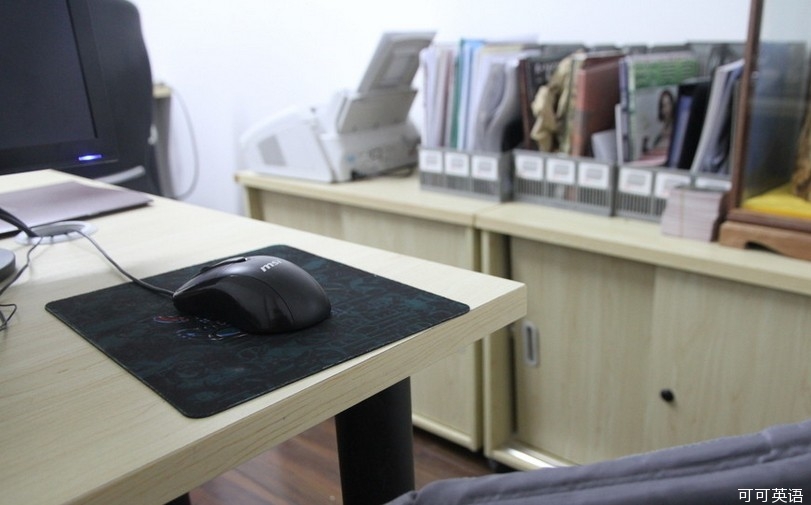(单词翻译:单击)

The weather outside your office window is inviting, the kids are home from school and getting up to who knows what, and your long-awaited vacation starts pretty soon. Is it any wonder that employee productivity takes a dive every summer? Still, according to a new survey by Ask.com of 2,060 adults employed full-time in the U.S., the three biggest drains on productivity have nothing to do with the time of year.
办公室外的天气很好,孩子们已经放假,谁知道会在家闹出些什么乱子,你期待已久的假期很快就会到来。每年夏季员工生产率都会有所下降,这并没什么可奇怪的。但根据Ask.com对美国2,060名成人全职雇员的最新调查,影响生产率的三大因素与夏季无关。
"The research yielded some unexpected findings," notes Lisa Ross, Ask.com's vice president of human resources. "For one thing, while telecommuting policies have been hotly debated in the media lately, it seems most office workers would rather be in an office, as long as companies provide an environment that provides for solitary 'focus time' with minimal distractions."
Ask.com的人力资源副总裁丽萨•罗斯说,“这项调查获得了一些意想不到的结果。”“一方面,虽然最近媒体一直在热议远程办公政策, 但大部分员工似乎都宁愿待在办公室里,只要公司能提供有独处“专注时间”的环境,把“分心”因素减至最少。”
Almost all of the survey respondents -- 89% -- said they are most productive when working alone, but only 29% would prefer to telecommute. The most common distraction in the office, cited by 63%, is "loud colleagues." (Noise-cancelling headphones, anyone?)
调查中几乎所有受访者(89%)都表示,他们在独自工作时效率最高,只有29%的人倾向于远程工作。63%的人表示,办公室里最常见的分心因素是“叫叫嚷嚷的同事”。(戴上防噪静音耳机,有人这么干吗?)
About 40% say they'd get a lot more done if coworkers would quit stopping by to chat, and nearly one in four (24%) complain that they "spend more time in meetings talking about work than actually doing it," the study says. In order to keep "idle chatter" to a minimum, 46% mainly use email, IM, or phone to communicate even with people who sit right next to them.
约40%的人表示,如果同事不再走过来闲聊,他们应当能完成更多的工作。研究显示,近1/4(24%)的人抱怨说:“他们花在开会讨论上的时间超过了真正做事的时间。”为了将“闲聊”降至最低,46%的人主要使用电子邮件、即时信息或电话进行沟通,就算对方就坐在他们旁边。
And speaking of who's in the next cubicle, if you're a manager, consider this: Some of your direct reports may wish you'd sit farther away. The survey found that 38% "would rather do unpleasant activities -- like opt for more work on their plates, sit next to someone who eats noisily, or take on a longer commute -- than sit next to their boss."
谈到邻座同事,如果你是经理,下面这个调查结果值得你注意:你的一些直接下属可能希望你坐得离他们远一点。调查发现,38%的人“宁可选择增加工作量、坐在大声吃东西的人旁边或更远的上班路程,也不愿坐在老板边上。“
What's up with that? "The fact that almost 40% of respondents would rather take on more work than sit by a manager suggests that this isn't about wanting distance from the boss so they can goof off," says Ross. "Instead, I think it underscores the idea of craving focus time, away from both chatty peers and micromanagers, to really maximize output."
这是怎么回事?“近40%的受访者宁可增加工作量也不愿坐在老板边上,并不是说他们想躲得离老板远一点,可以偷偷懒,”罗斯说。“相反,我认为这凸显出营造专注时间的重要性,远离那些爱闲聊的同事和事无巨细的管理者,真正实现产出最大化。”
It may also be, she adds, that "in an increasingly meeting-heavy office culture, people feel they're getting more than enough face time with their higher-ups." So if somebody requests a move to a cubicle way down the hall, it's (probably) nothing personal.
她补充说,这也可能是因为,“由于如今的办公室文化,会议越来越多,人们觉得跟领导面对面的时间太多了。”因此,如果有人提出要将自己的座位换到办公室另一头,这(或许)并不是出于什么个人原因。


